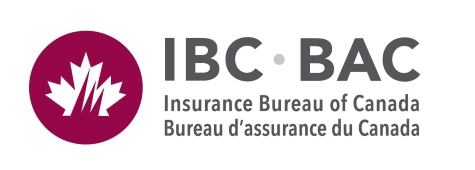Winter Storm Cato headed to Atlantic Canada
What you need to know about your home and auto insurance
HALIFAX, Nov. 26, 2014 /CNW/ - Meteorologists expect strong winds, heavy snowfall and rain throughout Atlantic Canada over the coming days from a storm heading up the East Coast of the United States that is being referred to as Winter Storm Cato. Insurance Bureau of Canada (IBC) wants to provide residents with information they need to know if they are affected by the storm.
"We understand the toll winter storms can have on families," said Amanda Dean, Vice-President, Atlantic, IBC. "That's why we want to help make the potential recovery process as straightforward as possible. If you have any questions, contact your insurance representative or call IBC's Consumer Information Centre. We're here to help."
Are you covered?
- Damage to homes caused by snow, hail or wind is typically covered. This includes damage caused by flying debris or falling branches or trees, or damage to your home and its contents when water or snow enters suddenly through openings caused by high winds.
- Damage to mobile homes or trailers from wind damage may be covered. Policy wordings vary so it's best to check with your insurance representative.
- Damage to cars from ice, wind or water may be covered if you have comprehensive or all-perils car insurance. This coverage is not mandatory so check your policy.
- Overland flooding is not generally covered in Canada. Flooding caused by sewer backup may be covered if add-on coverage was purchased.
- In certain circumstances, homeowners who are unable to live in their homes because of insurable damage are entitled to additional living expenses. Ask your insurance representative for more information.
- Food spoilage may be covered. Check your policy to see if you're covered, and whether a deductible applies.
Some tips for outside your home:
- Keep your sidewalk and the front stairs of your house clear of snow and ice to prevent falls and injuries.
- Keep snow and ice clear of gas or propane meters, exhaust vents and basement windows.
- Frozen pipes can break at their weakest point. To prevent freezing, fit exposed pipes with insulation sleeves or wrapping.
- If you need to drive, make sure all snow and ice is cleared from your vehicle and watch for downed power lines.
Starting the claims process
- When safe to do so, assess and document potential damages.
- Call your insurance representative and/or company to report damage or losses.
- Be as detailed as possible when providing information.
- If you need help getting in touch with your insurer, contact IBC's Consumer Information Centre at 1-800-565-7189 ext: 228.
About Insurance Bureau of Canada
Insurance Bureau of Canada (IBC) is pleased to celebrate 50 years as a valuable resource for insurance information. Since 1964, IBC has been working with governments across Canada to make our communities safer, championing issues that directly affect Canadians and the property and casualty (P&C) insurance industry. IBC is the national industry association representing Canada's private home, car and business insurers. Its member companies represent 90% of the P&C insurance market in Canada. The P&C insurance industry employs over 118,600 Canadians, pays more than $7 billion in taxes to the federal, provincial and municipal governments, and has a total premium base of $48 billion.
To view media releases and other information, visit the media section of IBC's website at www.ibc.ca. Follow IBC on Twitter @InsuranceBureau and @IBC_Atlantic or like us on Facebook.
If you require more information, IBC spokespeople are available to discuss the details in this media release.
SOURCE: Insurance Bureau of Canada

To schedule an interview, please contact: Celyeste Power, Manager, Media Relations, Insurance Bureau of Canada, 416-362-2031 ext. 4312 (daytime), 647-384-9872 (after hours), [email protected]

Share this article